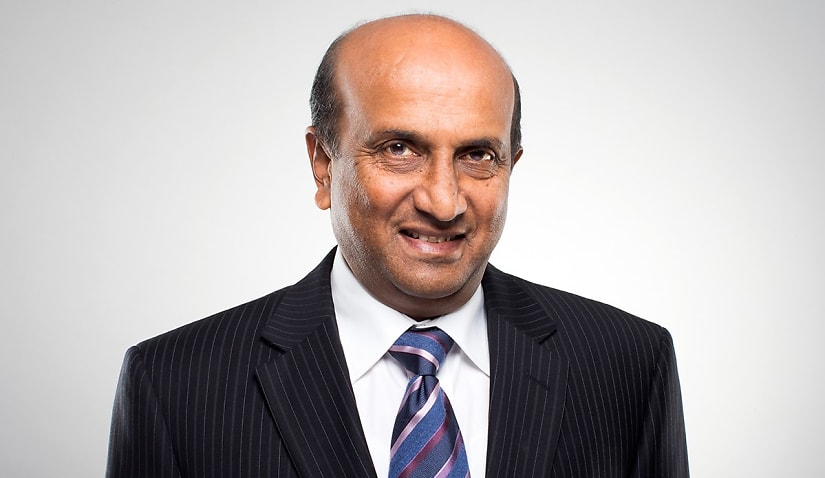After doing landmark work for Indigenous Australians and victims of the Stolen Generation, this lawyer reflected on his biggest achievements since migrating to Australia over four decades ago.

Maithri Panagoda recently published a book celebrating 40 years in legal practice and his career that has encompassed that 40-year period. Speaking recently on the Lawyers Weekly Show, he discussed his life in the law and his most notable achievements.
“I was in England for about six years. I did higher studies, postgraduate, qualified as a solicitor there, and then migrated to Australia when I was 31 years of age. The real journey started from there. My first job in Australia was with the Western Aboriginal Legal Service in Dubbo. I didn’t go there because I was passionate about that work. I went there because I couldn’t get any other work in Sydney,” he said.
“The first interview I got was in Dubbo and the initial idea was to come back to Sydney in about six months. But we ended up staying there for 10 years because I really loved the work, the people, the travels, the pluses and minuses. My eyes were really opened to the issues that people were facing, and I thought that was what I wanted to do and I felt very much at ease and continued to live there and work there.”
These issues, such as the social difference between different classes and ethnic groups, were ones that Mr Panagoda experienced in Sri Lanka — and also when he arrived in Australia in the 1980s.
“We have come a long way since, particularly with the indigenous people in Australia. In the northwest part of New South Wales, there were a lot of injustices that we could see on a daily basis. I joined as a civil lawyer,” he added.
“It was mainly a criminal practice, so there were so many issues, contracting issues, people not being able to get tenancies, various things like children’s education. So, there was a gap and I was able to fill that I think to some extent. That’s the path that I continued.”
Mr Panagoda also worked on a landmark case in the mid-nineties around the experience of Indigenous Australians in custody — and on one death in custody in particular.
“The only reason for him being in a police cell was he was intoxicated and he was hallucinating. That was the reason why he was taken to a hospital. From there, the police came and got him. To this day, people can’t understand why he had to be taken to a police station when he needed treatment. While he was there, he apparently killed himself. He was left in a very dark cell, no lights at all. Family was not informed, and the next thing that happened was the family had to identify the body. They thought he was in hospital.
“So that was the first deaths in custody matter that I think was litigated. We went all the way to the district court, there was an inquest, and then the first time we managed to get damages for nervous shock for the members of the family. To this day, I think it’s considered as an extension of the law of nervous shock,” he explained.
“The principles relating to nervous shock because they didn’t see him dying, they didn’t see the final episode, but they had to identify the body and because of that, they suffered nervous shock. So that gave me the momentum to go and do other things. We did come back to the later Stolen Generations. That was the biggest, like a class action, and then I continued my work with the first people of Australia.”
Mr Panagoda then moved to Sydney to work for Carroll & Dea — a move which he said meant he could increasingly focus on his work with the Stolen Generation.
“There had been a number of attempts in other states to get compensation for children removed from their families, due to various incorrect and racist policies of the government over the years. We were able to find a way to proceed with the support of the state government on a non-litigated basis. We started the scheme and today we have settled 256 claims, and I think Carroll & O’Dea is the only firm that has been able to achieve that. As I said, there was no litigation. We didn’t go to court. They’re all mediations, settlement conferences with the support of the Crown Solicitors in Sydney,” he said.
“That was a very satisfactory scheme. Where people are not put through multiple psychiatric assessments. The government admitted that because of the removal, people have suffered psychologically. So, on that basis, they’re prepared to pay some damages, compensation, and more importantly, a senior person from the government would come and offer an apology to each individual claimant. And sometimes it’s a written apology. Most of the time it was a face-to-face one, and so in the mediation room, there were a lot of tears on both sides. That, I would rate as my biggest achievement in the field.”
The transcript of this podcast episode was slightly edited for publishing purposes. To listen to the full conversation with Maithri Panagoda, click below:

Lauren is the commercial content writer within Momentum Media’s professional services suite, including Lawyers Weekly, Accountants Daily and HR Leader, focusing primarily on commercial and client content, features and ebooks. Prior to joining Lawyers Weekly, she worked as a trade journalist for media and travel industry publications. Born in England, Lauren enjoys trying new bars and restaurants, attending music festivals and travelling.